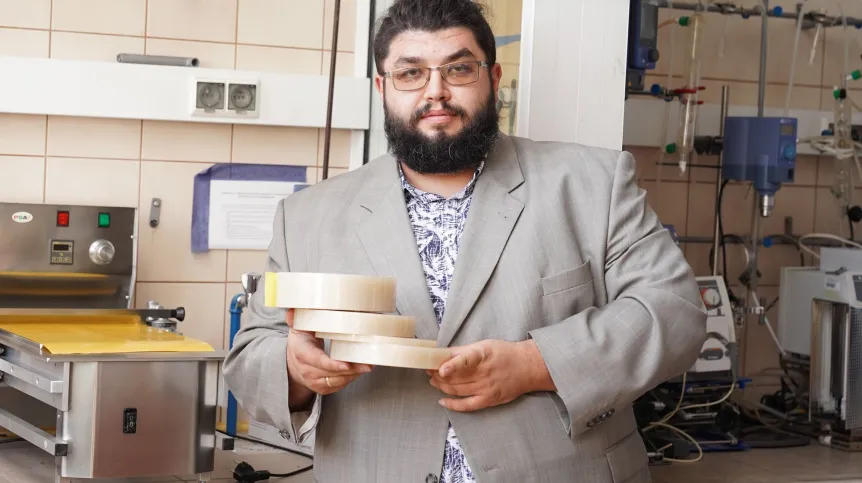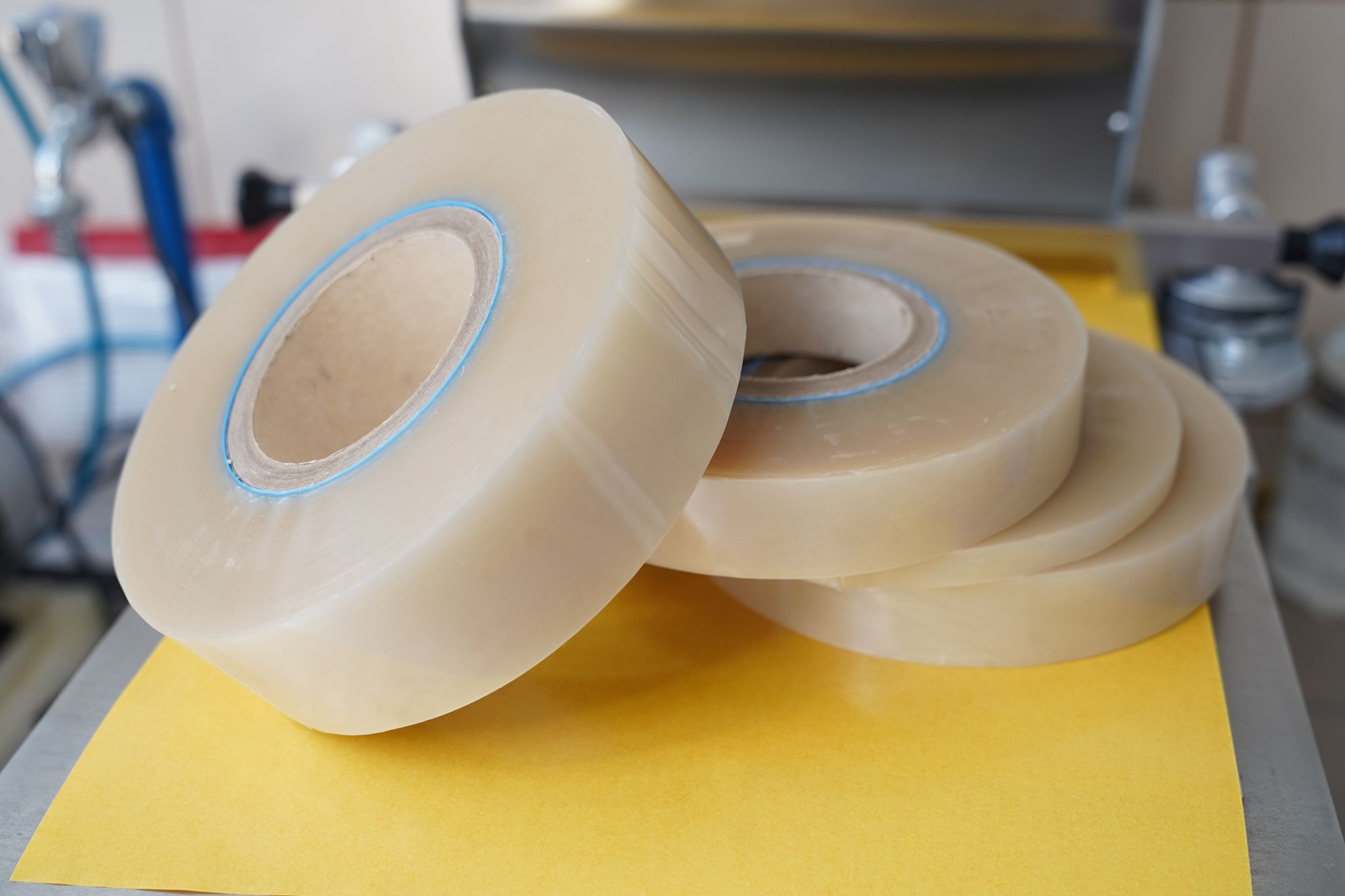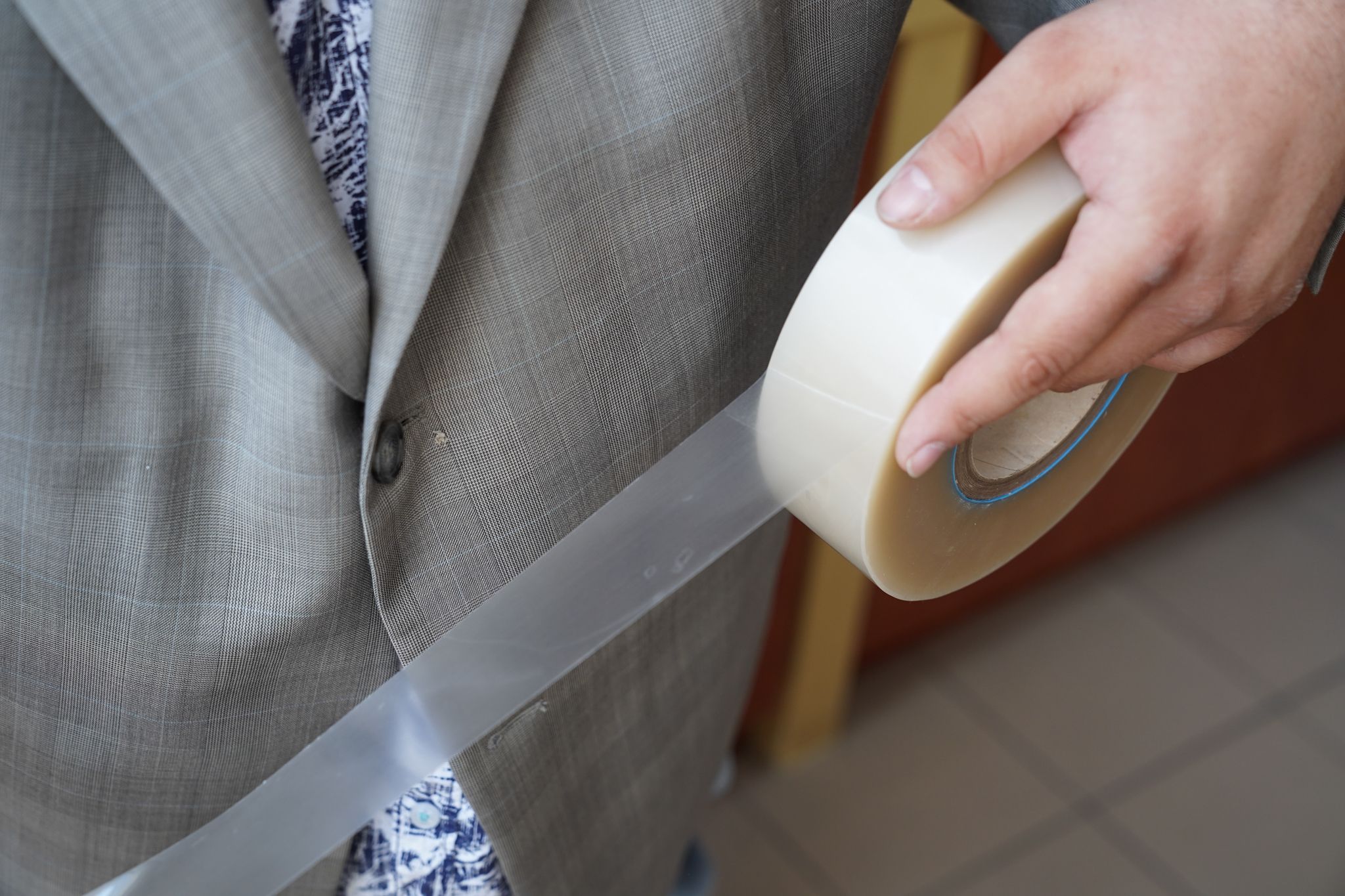
The world’s first bactericidal, self-adhesive, heat-resistant tape that can be used in the automotive, heating and medical industries has been invented by Dr. Krzysztof Antosik from the West Pomeranian University of Technology, who has been implementing a project financed by the Polish National Centre for Research and Development for several years.
'We have filed three patent applications for tapes that may have various applications. One has biocidal properties, the second shows exceptional resistance to high temperatures, and the third combines the above-mentioned bio and thermal properties. There are no such tapes in the world yet', Dr. Antosik told PAP.
The 36-year-old scientist explains that the biocidal properties are provided by the tape carrier (foil) that contains and releases essential oils. The silicone-based adhesive is exceptionally resistant to high temperatures (up to 300 degrees Celsius). Thanks to this, the bio-thermal tape can be used, for example, in photovoltaic installations.
'The biggest drawback in photovoltaics is that when the sun shines brightly, the efficiency of the installation decreases. The installation is cooled by pipes with liquid installed underneath. And to prevent water from blooming, we should use such a tape for installation. Thanks to its heat resistance, the tape is durable', he says.

According to Antosik, examples of the possible use of heat-resistant tapes include car engines (instead of cable ties, bands, rivets) and fireplaces, where installation joints require sealing. 'Thermal expansion will allow such a tape to last for a long time', he adds.
The flexible but strong tape works well in hard-to-reach places and on unusual surfaces. Its biocidal properties allow it to be used in the food industry (e.g. in cold storage), hospitals or laboratory rooms. 'Such a tape could be used, for example, to attach something to an autoclave or other sterile devices', Antosik continues.
The innovative tapes are the result of the project 'Silicone pressure-sensitive adhesives for special applications - SPECSIL' conducted under the LIDER programme financed (PLN 1.5 million) by the Polish National Centre for Research and Development. The work of scientists led by Dr. Antosik started in January 2021. Dr. Antosik had already been dealing with this topic, his doctoral dissertation concerned new silicone adhesives.
Dr. Antosik is an assistant professor at the Department of Organic Chemical Technology and Polymer Materials at the Faculty of Chemical Technology and Engineering of the West Pomeranian University of Technology. Ten people participated in the project, most of them affiliated with the West Pomeranian University of Technology. 'Patent applications are actually related to a side result: we have developed films that combine thermal resistance with biocidal properties', Antosik says.

The inventor is in talks with companies interested in implementing his idea on an industrial scale. 'I received money from the Polish program, which is why I am talking mainly to Polish companies and those that run production in Poland', he adds.
The scientist from the West Pomeranian University of Technology is also working on a biodegradable foil. Thanks to production from natural materials, such foil would not take hundreds of years to decompose, and it could also be used in medicine, to manufacture non-adhesive and adhesive dressings. (PAP)
PAP - Science in Poland
tma/ jann/ kap/
tr. RL













